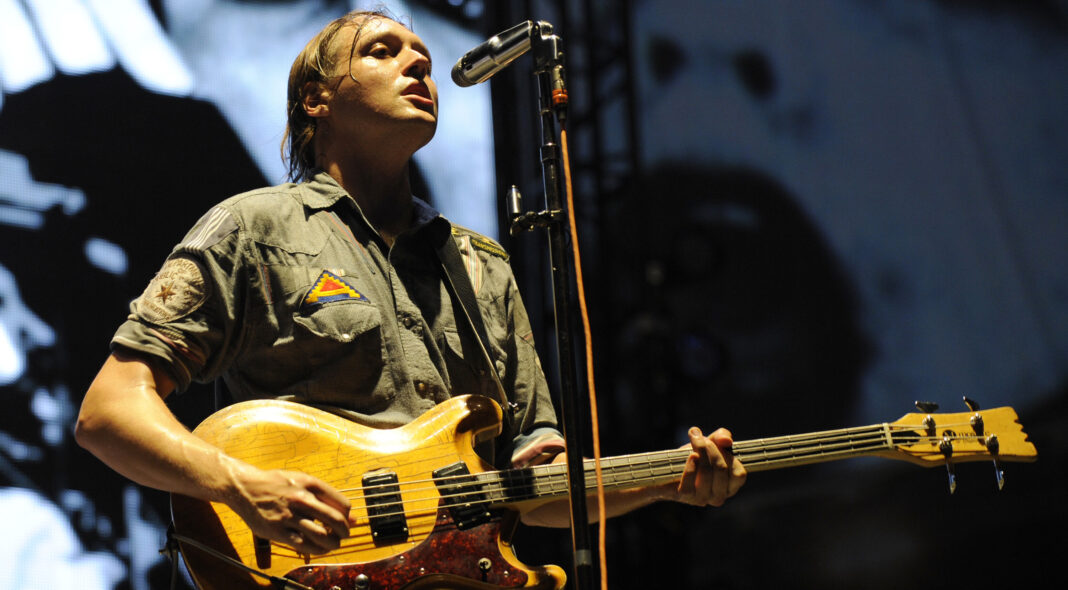However you look at it, 2020 has been a horror story. Not only is COVID-19 is still taking thousands of lives across the world, but it’s claiming livelihoods too. In the UK, as lockdown brought businesses across the spectrum to a halt, the arts industries in particular felt a catastrophic blow. Long standing theatre shows have been forced to shut down, music venues are on the brink of closing for good and freelance staff who keep the entertainment industry alive have fallen through the gaps in government grants.The mood is sombre and the future uncertain. Alarmingly, reports are already suggesting that we’re headed for another recession that could take years to climb out of.
As we continue to deal with aftershocks of the virus, some of the tension and uncertainty will inevitably make its way into music. Artists have already started to reflect on themes around lockdown, and whatever happens in the next few years is likely to shape not only the sounds that we listen to, but how and where we hear them.
So on its tenth anniversary, it’s hard not to recognise certain thematic similarities that led up to the release of Arcade Fire’s ‘The Suburbs’. The record dropped in the midst of the fall out from the 2007/8 global financial crisis – albeit one caused by big business mistakes rather than a global health crisis – but until now, the ensuing recession had been described as the worst since the Great Depression of 1929. Unemployment and debt spiralled. Government cuts were rife. Life for most of the western population, who’d already endured an economic downturn as recently as 2000, was pretty shit.
For their third album, Arcade Fire took the lonely, expansive desperation of the post crash west and transformed it into a record of haunting anthems that perfectly summed up the zeitgeist. Or as frontman Win Butler puts it in the roaring mid album track, ‘Month of May’: “2009, 2010, wanna make a record how I felt then.”
The band had never shied away from charged songwriting; 2004’s ‘Funeral’, was a transcendental look at the anguish and frustration brought on by grief, while 2007’s ‘Neon Bible’ was heavy handed in its political statements against political and cultural leaders. On ‘The Suburbs’, the songs were still massive, but the sound was tinged with a weariness towards the world.
On the surface, it’s a record about trying to get away from the place you grew up, only to find yourself right back there anyway. As the keys chime in on the grandiose opener, Butler describes an all too familiar feeling of teenage desire to get away from the mundanity of the town where you ‘learned to drive.’ But as the record progresses, its lyrics become more multifaceted and references towards the uncertainty of the time were weaved into the personal experience.
‘Ready To Start’s opening line; “The businessmen are drinking my blood/ Like the kids in art school said they would,” seems to be both an overt reference to the mood towards huge corporations in a time the world felt betrayed by big business, but also Butler coming to terms with his position in a band whose first two albums saw them grow from obscurity to big ticket headliners working with a major label. While on ‘Rococo’, the “modern kids” are cynically mocked for their “big words” and naive dreams.
Elsewhere, there’s further allusions to widespread feelings of deception. ‘A City With No Children’, references Orwell’s famous line about armies of unemployed being led by millionaires quoting the Sermon on the Mount, while on ‘Half Light II’ there’s a direct mention of the markets crashing and the desires that were crushed with them. While the pandemic has led to speculation that there will be a mass exodus from cities and concerns over sky high rent have been exacerbated, Butler’s lyrics touch on being sent for by his parents and heading ‘back east, to find a town where we can live.’
At points, the record is lighter in its evaluations. Over the staccato keys of, ‘We Used To Wait,’ Butler remembers the excitement with which children once waited for letters to be delivered and how that patience has been supplanted by the “flashing lights” of modern technology of texts and emails. During lockdown, when a knock on the door from the postman carrying cards from distanced friends has proven a lifeline for many, it’s hard not to feel that same nostalgia while appreciating the speed of which we can connect to each other over Zoom calls.
But elsewhere, the record’s outlook is bleak. Now, as we face widespread redundancies and inevitable cuts across government spending – particularly in the arts sector – the album’s penultimate track feels all the more affecting. Sonically, the song leaned towards disco with its spiralling synths, but lyrically it reinforced the notion of retreating to your hometown, feeling at a loss after being told to, “quit these pretentious things and just punch the clock.”
Still, where there’s desolation, there’s renewed ambition. Even in ‘Sprawl II’, arguably the record’s darkest song delivered in Régine Chassagne’s hauntingly sweet vocals, there’s a moment of optimism delicately presented in the metaphor of feelings swimming to the surface in the dead of night. Amongst the stripped back simplicity of ‘Wasted Hours’, renewed buoyancy is found when Butler asserts “we’re still kids in the buses longing to be free.” And in the album’s closer, Butler recalls the sentiment of the titular track and whispers he’s “moving past” the feeling of squandered youth and wrecked endeavours, while admitting that if he had the chance he’d waste his time all over again.
Listening now, while we’re both in the middle of a crisis but also bracing ourselves for losses that may shape our lives over the next decade, the beauty of the brutal honesty in ‘The Suburbs’ shines through more than ever. Grief may feel overwhelming and dreams might be crushed in a world that can’t nurture them right now. But by documenting and dissecting our despondency, we too might just be able to ‘move past the feeling’ of desperation and find ourselves able to hope again.







